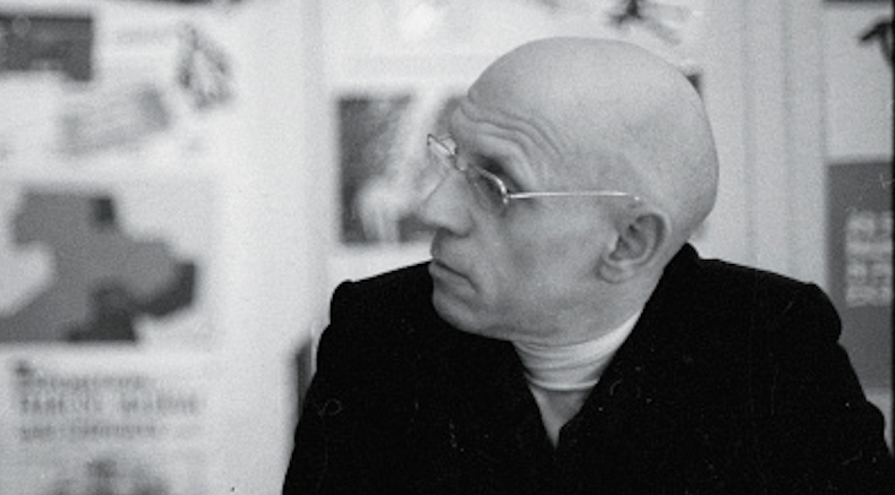The Last Man Takes LSD: a Letter from the Editor
The Foucault Wars never ended, and this latest salvo is by far amongst the most interesting.

The Last Man Takes LSD: Foucault and the End of Revolution by Mitchell Dean and Daniel Zamora is included in our Verso Book Club in May. Join now for 50% off!
The Foucault Wars never ended, and this latest salvo is by far amongst the most interesting. First of all, because of the team of authors involved. I have known Daniel Zamora for many years, as one of the more lively and spikey presences on the otherwise somewhat morose and flaccid Belgian left intellectual scene. He and I disagree on some important political issues (I would say that he is closer to Le Monde diplomatique than me and has fewer criticisms of the more controversial works by Domenico Losurdo), but I enjoy his sense of humour and we share a nerdish obsessiveness about Marxist and socialist theory in the 1960s and 1970s (indeed, I introduced him to the joys of fatherhood as he looked after my infant son whilst I slavered over the shelves of one of the best second-hand left bookshops in Brussels…). Daniel has a talent for taking up intellectual-political issues in a manner that goes viral, such as his critiques of the basic income fetish, and I wasn’t surprised to see the success of his pieces on Foucault in Jacobin that also spawned a multi-author collection published by the Third Way imprint Polity Press. By contrast, Mitchell Dean I only knew via his key text Governmentality: Power and Rule in Modern Society (revised 2nd edition. London: Sage 2010), and, as a young Trotskyist at war with “postmodernism” and rampant Foucauldianism, I had lazily classed him as part of the generation of left liberal Foucault fans who were utterly hostile to Marxism. This book clearly establishes him as a much more critical and independent spirit, thanks to rather than despite his decades of scholarship on the French thinker-turned-guru. So, the combination of these two very different authors – generationally, politically, culturally – is worth underlining.
Secondly, The Last Man Takes LSD focuses on a very specific sequence of Foucault’s trajectory, namely from his visit to California in the mid-1970s to the early 1980s. Some of this has been covered in the memoir by Simeon Wade, Foucault in California, but Daniel and Mitchell are attempting something much more ambitious than simply recounting a salacious episode, by placing this moment in a more general account of his wrestling with neoliberalism, the end of the emancipatory wave set off by May 1968, the transformation of Paris into “the capital of intellectual reaction in Europe” under the paradoxical auspices of the victory in 1981 of François Mitterrand in alliance with the French Communist Party and the collapse of far left militantism. So, the book is an excellent complement to some of the richer recent discussions of the shifts in French intellectual and political life, such as Michael Christofferson’s indispensable French Intellectuals Against the Left: The Antitotalitarian Moment of the 1970s and it is to hoped that it will contribute to the debate around some of the new scholarship on Foucault, particularly Stuart Elden’s multi-volume enterprise, as well as the discussions of his relationship to Marxism, such as Marx and Foucault.
Verso has had a long and complex history with Foucault: originally recommended to New Left Books by Louis Althusser, we passed up that opportunity and the first reactions to his work were highly critical, such as Marxism and Epistemology: Bachelard, Canguilhem, Foucault by Dominique Lecourt, Perry Anderson’s In the Tracks of Historical Materialism and Logics of Disintegration: Poststructuralist Thought and the Claims of Critical Theory by Peter Dews. But, over time, Verso also published more positive appreciations of his work, such as The Circular Structure of Power: Politics, Identity, Community by Torben Bech Dyrberg, Michel Foucault: Genealogy as Critique by Rudi Visker and, more recently, works by the late Deborah Cook and by Thomas Lemke. We were also very pleased to be able to republish David Macey’s wonderful biography and have translated works by “left Foucauldians” such as Christian Laval and Pierre Dardot and Frédéric Gros. Unkind spirits may say that we have covered our bets, but I would prefer to say that we have attempted to steer a middle course between the sycophancy of the Foucault Industrial Complex and the philistinism of a certain type of crusader against (post)structuralism.
In any case, Alea iacta est and enjoy our latest contribution!
–Sebastian Budgen, Senior Editor